Any operating system is a very complex design that has a room for errors, problems, and other unpredictable phenomena. The artificially created “phenomena,” which we call viruses, Trojan horses, worms, and spyware, are of particular concern. Linux family operating systems are considered to be well protected from such problems. Вut they are not immune to similar threats. To protect against malware, security professionals develop programs commonly known as antivirus.
Does Linux require antivirus? This issue causes heated discussions among users. For Linux, viruses are not scary in the way that Windows users know them. Here, unwanted consequences can be caused mainly by neglect and incorrect actions of the user. For example, phishing sites, running dangerous commands with root rights, and external hacking.
Today we will review the top 8 antivirus solutions for Linux and explain you how we test. The Internet is full of reasonings about “the best antivirus.” Still, we believe that it is worth trusting, not reasoning, but facts. The antivirus software presented here proved themselves to be really impressive in third-party lab tests, and that’s why they got into this review.
Best Linux Antiviruses
Sophos – the Best choice for Linux
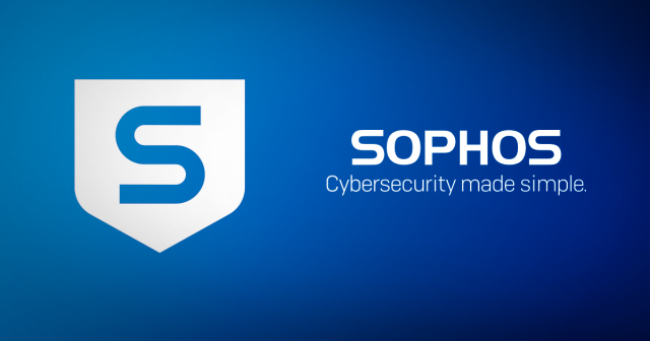
Sophos is an antivirus that will protect all laptops in your home from malware, dangerous websites, and viruses. This antivirus software uses the same antivirus technologies incorporated in Sophos enterprise solutions. The Sophos Home free version is designed for non-commercial use and allows you to protect up to 3 computers with a single account.
Sophos Antivirus is recognized as one of the best antiviruses for Linux. Its free version is really decent. Sophos Free not only conducts the on-demand scanning; besides it, Sophos protects your system in real-time. There are different versions of this antivirus; besides Linux, it can be used on other platforms, for example, on Windows and Android. It is capable of detecting and removing worms and Trojans. If you like to dig through the command line, it provides the appropriate interface.
With the Free version, you will obtain reliable antivirus protection of entry-level (which is quite sufficient). Sophos Home blocks malware and helps to prevent hackers from accessing your sensitive information. Both the Free and Premium versions will protect you against online threats and suspicious websites. With just a few mouse clicks, you can block access to sites that may contain dangerous content or malware.
Sophos antivirus for Linux identifies and removes viruses, worms, trojans, and other malware. Besides the sophisticated analysis based on advanced heuristics, Sophos Antivirus for Linux implies Live Protection to search for suspicious files in real-time via SophosLabs.
Sophos Antivirus for Linux constantly strives to improve performance. This solution will keep your Linux OS safe without slowing down the system. To enhance system performance, you can also customize configurations using file names, directories, and wildcards. Sophos Antivirus for Linux offers the pre-compiled support for a set of Linux distributions and cores, including 64-bit versions.
- Incorporated artificial intelligence
- Efficient web protection
- The option of parental web filtering
- Premium version allows to connect up to 10 devices
- There is no technical support
- The centralized management is inaccessible
Bitdefender

Bitdefender is an antivirus with a truly great interface created by the Romanian company, Softwin. The first version of this solution was released in 2001, and it was the real leap forward in the field of antivirus software. Bitdefender for Linux includes the following modules: antispyware, spam scanning, firewall, vulnerability scanner, privacy control, and backup tool. A Unix antivirus scanner from BitDefender is a universal on-demand scanner for FreeBSD systems and Linux. With an easy-to-use graphical interface and sufficient command-line, you can scan your computer for viruses.
Bitdefender Antivirus for Linux has a graphical interface, with the help of which you can access it directly from the application list. The scripts help to integrate an antivirus scanner into your file manager or e-mail to share them with Bitdefender Antivirus Scanner for Linux.
Bitdefender antivirus for Linux unpacks and scans the archive content too. To minimize the risk of further infection and ensure system security, Bitdefender can quarantine all the infected files. Besides them, Bitdefender also deals with suspicious files in case heuristic analysis identifies them as the ones having malicious code characteristics but do not match recorded viruses that may be quarantined.
Bitdefender also supports the integration with the following software: Midnight Commander, Qmail-Scanner, KDE Konqueror, Pine, Evolution, Krusader, ROX-Filer, etc. With the help of Bitdefender, you can scan any file or directory, or update databases with a single click. At the same time, in the AV-Test lab, Bitdefender shows not very good results - 85.7% for Linux and 99.8% for Windows viruses.
Bitdefender could be your next antivirus because it’s doing a good job. However, there is no free version; only a trial version is available for download. You can download it from the official website.
- Scanning of archives
- Integration with a desktop environment
- Intuitive GUI and command-line capability
- Send infected files to a secure directory for quarantine
- No free version
- Not for the inexperienced users
Comodo

Comodo Antivirus for Linux is GNU/Linux based security software with built-in e-mail protection. It protects Unix systems from viruses and has its anti-spam policy. In addition to standard scanning, cloud-based analysis of unknown files is used to protect against the latest and unknown threats. The powerful mechanism is complemented by a finely customizable mail gateway to block email-related threats and to filter spam messages.
The Comodo Free version will provide you with Defense+ Technology, Auto Sandbox Technology™, and efficient spyware scanning. In turn, the Premium version will have all the same plus strong firewall, guarantees you a safe shopping, web filtering and cloud-based scanning.
Main features:
- Real-time and on-demand malware scanning;
- Cloud-based scanning;
- Compressed packages scanning;
- Heuristic scanning;
- Whitelisting and intelligent scanning;
- Quarantine and event log;
- Signature updates.
- Spam messages filtration
- Effective cloud-based technology
- Useful Sandbox feature
- May slow down your system performance
ESET Nod 32
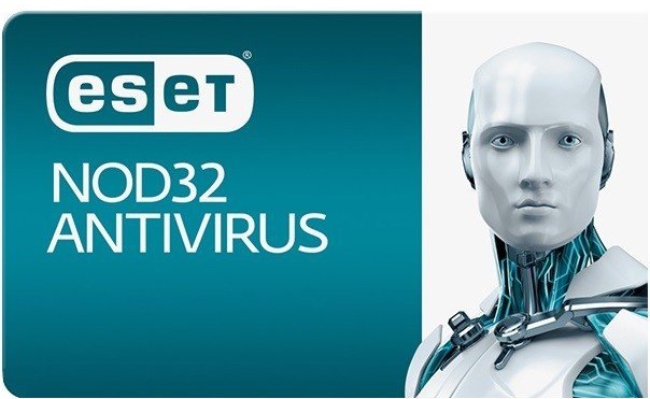
ESET NOD32 Antivirus for Linux offers effective protection against all types of virus threats and network attacks for GNU/Linux OS computers. According to testing by the German laboratory AV-Test, it is the best antivirus for Linux. It detected 99.8% Windows threats and 99.7% Linux viruses. The drawback is that the program is paid. However, in the list of the best antivirus solutions for Linux, we have to consider commercial solutions too.
ESET NOD32 Antivirus provides powerful and efficient protection against growing threats to Unix-like operating systems. It can also detect Windows viruses, preventing other Windows computers from being infected over the local network, over the Internet, or from sharing suspicious files using.
The ThreatSense.Net Quick Alert System keeps developers informed of new security threats. This system provides for the transmission of malicious or suspicious code samples to the ESET lab. Samples are analyzed and added to the virus database. The detection of potentially undesirable apps allows you to clear the system of programs that may not be malicious, but may negatively affect the operating system, and that may have been installed without your permission.
ESET NOD32 Antivirus for Linux is the antivirus with full functionality very similar to the Windows version. The main features are:
- Real-time protection;
- Virus Mail Scan;
- Scanning plug-in USB;
- Scanning programs before installing;
- Auto-detection of potentially unwanted software;
- Low CPU consumption;
- Wide range of settings;
- Scheduled scanning;
- Automatic Database Updates.
Although the antivirus is not free, you can run the trial version and have your impressions on it. Moreover, the capabilities of this antivirus make it possible to say that it is worth the money that is asked for it.
- Excellent lab-test results
- Best virus and spyware protection
- Suitable both for home users and enterprises
- Supports network security features
- Automatic Database Updates
- Not for newbies
- No free version
ClamAV
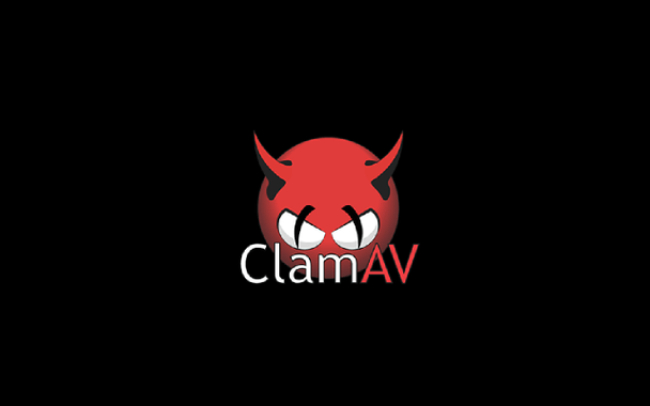
Perhaps, ClamAV is the most famous antivirus among the Linux users. ClamAV antivirus is an open-source solution with a decent free version. Most importantly, the free version is the only option ClamAV can propose, and it’s worth your attention. It is considered a comprehensive antivirus that can fight Trojans, viruses, and other malware. It also supports the scanning of standard mail gateways.
ClamAV is easy to use; it works quickly enough. At the same time, it doesn’t have a graphical interface and is controlled from the terminal. ClamAV includes several utilities, among which are flexible multi-threaded daemon, a command-line scanner, and sophisticated utility to update databases automatically. ClamAV also has built-in support for various archive formats, including Zip, RAR, OLE2, CHM, Cabinet, and many others.
Key features of ClamAV:
- The scanner of a command line;
- Graphic interface for Sendmail;
- Sophisticated database update utility;
- Built-in support for all mail attachments formats.
- Update the virus database several times a day
- Open source code
- Free of charge
- Does not demand installation
- Security features range is not wide
- Conflicts with other antivirus programs
F-Prot
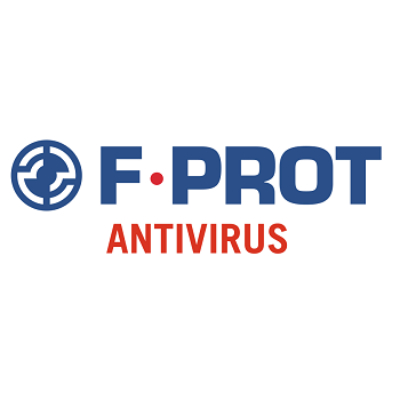
F-PROT Antivirus for Linux was designed to destroy viruses threatening Linux-based workstations effectively. It uses a known F-PROT scanning mechanism, as well as heuristic analysis to search for unknown viruses and to update its database.
F-Prot is a rather old antivirus market player, so it is no wonder why the users call it the most well-known antivirus for Linux. It can be used both for home needs and business ones. F-Prot supports 32-bit and 64-bit software architectures. It can detect more than 2 millions of known viruses, as well as their varieties. It can also combat Trojan programs and even boot viruses. What is more appealing, F-Prot antivirus does not require installation.
F-Prot Antivirus for Linux OS is a fast, efficient, and easy-to-use product. It protects Linux OS from the ever-growing threat of viruses, worms, and other malware, by detecting, treating, or removing them. F-Prot detects the unknown threats with its advanced heuristic technology, providing powerful protection for your laptop.
Key features:
- F-Prot Antivirus for Linux provides the same functionality as for Windows products;
- Antivirus protection without compromising system performance;
- Scanning compressed files and compressed executables;
- Scanning macro viruses and trojans;
- Command-line scanner.
- Free of charge
- Does not demand installation
- Supports various software architectures
- Updates virus base constantly
- Not outstanding results in the lab-tests
Avast Core
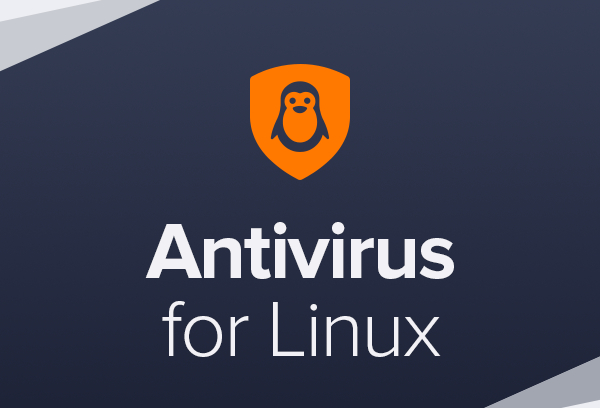
Avast Core is a popular antivirus, which has a set of impressive features for Linux. AV-Test results are 99.7% for Windows threats and 98.3% for Linux viruses. Avast Core also has a graphical interface and has both free and paid versions. However, after installation, you need to enter your data and wait for the key by e-mail. The primary antivirus service supports system security and is used to configure security settings.
The Avast File Server Security guarantees real-time file scans and thorough system monitoring. In the Premium version, the protection of Samba and NFS servers is supported. Fanotify technologies, on which the scanner is based, allow you to achieve a high level of security for your server. Because Avast File Server Security protects files only on the servers themselves, it does not connect to workstations, affect their operation, or reduce network performance.
The command-line utility (scan) enables on-demand antivirus scanning and integrates with mail servers using AMaViS. The database update script checks and downloads the latest VPS version every hour. Additionally, the scan service connects to the Avast cloud and receives the latest virus signature updates as soon as they are released.
Avast Core Security is one of the best antivirus tests. Avast supports many Linux distributions, 32-bit, and 64-bit software architectures. In addition to traditional virus protection, it provides network security and file server protection within the Premium version.
Features:
- Scanning of the connected drives;
- Scanning of the file system;
- Easy installation;
- Updating of databases;
- Scanning of the opened files.
- Real-time antivirus protection
- Effective spyware detection
- Network protection
- Regular updates
- Cumbersome design
- May be confusing for the inexperienced users
F-Secure
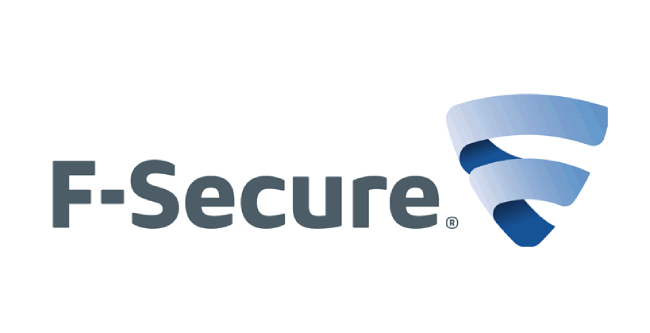
F-Secure Linux Security is an antivirus solution for Linux clients and servers with real-time protection, built-in firewall, and protection of important system files against unauthorized changes. Based on the results of the AV-Tests, this antivirus detected even fewer percent of Linux viruses - 85%, and 99.9% of Windows threats. The antivirus is also focused primarily on servers, scans the file system for viruses; there is a function of FS monitoring, as well as e-mail scanning.
F-Secure Linux Security offers complete security with real-time, manual, and scheduled scans. The antivirus solution is available for installation in full mode or in command line mode only. The 30-day trial period allows you to take advantage of all features of the full version.
Automatic, real-time antivirus scans protect your system and prevent viruses from spreading across your network. Firewall blocks viruses and hackers by protecting your server from misguided and network worms. Besides, intrusion prevention does not allow you to exploit known vulnerabilities, modify essential system files, or store unwanted files on enterprise servers.
Integrating with centralized F-Secure, Policy Manager, or PSB management systems, antivirus notifies administrators of any security threats or virus activity. Administrators can modify various security policies using the Policy Manager.
F-Secure Linux Security Core Features:
- Network Threat Protection for Windows and Linux;
- Protection against malware, viruses, trojans, rootkits;
- Protects against unauthorized access on the corporate network;
- Protects system files from unauthorized changes;
- Scans malware on file, mail, web, and endpoint servers;
- Easily deploy and manage with Policy Manager or Web UI;
- Advanced monitoring and alerting for administrators;
- Supports internal and offline firewall management.
- Highly-efficient antivirus solution
- Continuous real-time protection
- Wide range of features
- No free version, only trial
Free vs Paid Antivirus for Linux

After testing many different versions of antiviruses, we can conclude that free and paid antiviruses are almost on the same level of quality. Why would we say that? The fact is that the share of paid antiviruses in the market is much less than free ones.
The prevalence of free antiviruses allows antivirus companies to respond promptly and replenish the database of signatures of their solutions. When many users have installed free antivirus, the company has a substantial replenished base of viruses, which users find on the Internet. By downloading any suspicious file, the free antivirus automatically sends it to the antivirus company, where the specialists will analyze them and record them in the signature database.
As you can see, the base of paid antiviruses, replenished by users, is much smaller, as paid solutions are less common. In this way, antivirus companies producing paid antiviruses are forced to use their specialists to search for and identify viruses on the Internet.
Free antivirus has the opportunity to expand its functionality to a premium version. The premium version means that free antivirus will have more features and thus protect your computer from viruses better. Besides, premium versions lack the annoying ads. The premium may include such features as network screen, cloud-based analysis, advanced heuristic analyzer, and others.
Remember the most crucial rule - any antivirus protects against viruses if it is updated timely, that is, has access to the Internet, and thus replenishes one’s virus database.
Do Linux Users Need an Antivirus?

We live in the twenty-first century, and it’s a little surprising that many people still think Linux operating systems are virus-free and entirely safe. Just as many OS X users believe that their operating system is completely immune from viruses, so Linux users have such a misconception. But no one has the right to blame them for the developers have convinced them of this for many years.
There is and cannot be any 100% virus and malware protected operating system. Linux is not yet as infected with viruses as Windows. It can even be said that when the system is properly handled, it is not so easy to catch the virus.
Even if there is no malicious software for Linux, is it safe? Of course, no. The number of threats is now much more than just virus infection. Imagine a phishing e-mail coming to you or visiting a phishing site via the dangerous URL. Does Linux protect you from entering personal or credit card information on such sites? Regardless of the platform you work on. You always need to stay vigilant and be careful.
How to Choose Best Antivirus for Linux

Linux distributions have a low desktop market share, but you can’t say the same about other markets. Linux distributions account for more than 40% of the server market share, and on supercomputers, they hold a full monopoly. Finally, the mobile segment has an Android operating system based on Linux and occupies the lion’s market share. There are now more than a billion Android devices. Do you still think that the virus avoids Linux because of its unpopular nature?
To choose the best Linux antivirus, you need to consider several aspects. First, remember that Linux viruses are different from regular Windows viruses; they have very different tasks. Among them are rootkits, which job is to hide in the system and follow the instructions of the host. They infect home computers rarely because of their security, but unprotected routers and poorly configured servers can become their victims.
Although the number of such malware is still rather insignificant, there are nevertheless many cross-platform threats. These are mostly vulnerabilities in programs based on cross-platform programming languages such as Java, Perl, PHP, JavaScript, Python, Puby, etc. Besides, Linux servers, typically invulnerable to Windows viruses, distribute them to Windows machines. When a user opens any malicious link, they are likely running a Linux server.
Most Linux distributions typically possess advanced security systems, but all of them are difficult to set up and use. Every computer connected to the network is not immune to viruses. But everything is relative. If we compare Windows and Linux levels of vulnerability, we will quickly understand why a lot of people say that Linux is safe.
The virus is a complex program that copies itself and quickly other devices. There are other explanations for the concept of “computer virus” so that it includes all kinds of advertising software, malware, and spyware that do not have the reproductive capacity, etc. It can be said that a computer virus is one of the types of malicious software or code that can infect computers or spread without the will of the user. Recently, there has been a new trend in the spread of cross-platform viruses.
Here are some steps you need to do to improve the security of your Linux system and to avoid running Linux viruses on your computer:
- Rootkit check
- Enciphering of a disk
- Strong password protection for the root user
- Correct distribution of privileges among users
- Correct file rights
- Use of SELinux
- Control of a firewall
- Use of an antivirus
- Remove unnecessary programs that may have vulnerabilities
- Install important security updates
Linux viruses can be transmitted in various ways:
- Suspicious mails
- Broken applications
- Harmful URL addresses
Although it is very difficult to infect a Linux machine, you should not be left completely unprotected.
How We Tested

To test Linux antivirus, we needed to take several steps.
First, we downloaded free versions of the antivirus solutions we reviewed, as well as paid ones. The primary purpose is to test and to use the software on behalf of the user to see all its weaknesses and strong points.
Second, we installed all the products one after another on our computers with Linux OS (we have 7of them). During the installation, we observe this process, noticing the obstacles the user might face installing the product by himself.
The third step implies running the tests. We launched quick, deep, and scheduled scans, tested firewalls, clicked on the suspicious URLs to see whether the antivirus will inform us about it. We paid much attention to anti-phishing, web-filtering, and anti-rootkit aspects, because, in many cases, it is the user’s responsibility. In 3 months, we updated the licenses where it was needed and re-ran our tests to understand if the solution is still sufficient.
Bottom Line
Recent IT boost demonstrated that viruses for Linux do exist. Encryption viruses for Linux appear each month that is devastating enough. And the vulnerabilities that are found continuously in various software open the way for viruses to infect the system, bypassing all levels of protection. So, it is unreasonable to think that the operating systems based on Linux have total immunity to viruses. If you are careful enough and have a sufficient antivirus solution, you can enjoy Linux without viruses for many years. But don’t get trapped believing Linux is completely immune to viruses.
We tried to describe in our review the best antivirus for Linux, based on various characteristics of these programs, such as price, ransomware protection, reliability, and results of independent tests. You may have noticed that the list includes free and paid products, among which anyone will be able to find the right Linux antivirus.
The list includes reviews on efficient paid programs with trial versions, which show very high results in tests. You may look at one of them. In general, you can say that any of the antiviruses discussed here will help you protect your Linux OS against malware.






Comments